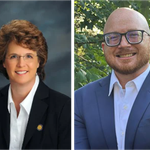In the 1990s, the Gallup Poll measured support for the death penalty in the United States at 80%. Since then it has fallen into the mid 50%s. The death penalty has long been opposed by human rights and civil rights activists, who question whether capital punishment can be applied fairly and whether the risks of executing innocent people are too great, and by those who consider it morally wrong for the government to take the life of a prisoner who has already been incapacitated by incarceration. But a growing number of non-traditional voices have raised new concerns about the death penalty, questioning its cost, its ineffectiveness in protecting the public and police, the disservice it does to family members of murder victims, its inconsistency with a pro-life ethic and the values of limited government, and whether the money spent on the death penalty could be used more effectively. These new voices represent a variety of perspectives, from judges, prosecutors, and law enforcement veterans to legislators, academics, spiritual leaders, and murder victims’ families.
For more information about new voices in the death penalty discussion, see news features about:
- Conservatives
- Victims
- Law Enforcement
- Judges
- Academics
- Editorials
- Medical Professionals
- Miscellaneous
- Political Leaders
- Prosecutors and Attorneys
- Religious
- Supreme Court Justices
News & Developments
News
Oct 20, 2025
DPI Podcast 12:01 The Death Penalty in Context: Maha Jweied of The Responsible Business Initiative for Justice Discusses Intersection of Business and the Legal System

In October 2025’s episode of 12:01: The Death Penalty in Context, DPI managing director Anne Holsinger interviews Maha Jweied. Ms. Jweied, the CEO of The Responsible Business Initiative for Justice (RBIJ), is an internationally recognized expert on the role of the private sector in justice systems and an advocate for improved access to justice worldwide. During the podcast, Ms. Jweied describes RBIJ’s mission of working with business leaders to push for criminal…
Read MoreNews
Sep 05, 2025
Article of Interest: Head of Conservatives Concerned About the Death Penalty Calls Execution Increase a “False Indicator”
In an op-ed for The Black Chronicle, Demetrius Minor (pictured), executive director of Conservatives Concerned About the Death Penalty, argues that an uptick in executions in 2025“represent[s] the past more than the present as a remnant of our nation’s former affinity for capital punishment.” Mr. Minor’s opinion finds support in DPI’s recent mid year review, which notes that new death sentences in July were lower than they were at the same time in 2024. The better…
Read MoreNews
Mar 11, 2025
Former Chair of Oklahoma Board of Pardons and Parole Speaks Out Against the Death Penalty as Pending Moratorium Bills Gain Support in Legislature
Adam Luck (pictured), the former Chairman of Oklahoma’s Board of Pardons and Parole and former member of the Oklahoma Board of Corrections, is now speaking out against the death penalty in Oklahoma. Explaining his change of heart, Mr. Luck cites to his first-hand experience with flaws in Oklahoma’s capital punishment system, including botched executions, and his deep Christian faith.“Having the unique experience of voting on the life of another human being forced me to…
Read MoreNews
Feb 24, 2025
Article of Interest: Cato Institute Fellow Critiques Medical Ethics Double Standard Around Executions
In a February blog post, Cato Institute Senior Fellow Jeffrey A. Singer criticizes the use of medicalized lethal injection, highlighting the double standard under which procedures that medical professionals are ethically barred from carrying out are not only allowed, but required, of law enforcement personnel.“A doctor who intentionally performs cruel and medically unjustifiable procedures that cause pain and suffering could face criminal charges. If…
Read MoreNews
Aug 19, 2024
Kansas City Star Op-Ed Describes the Death Penalty as the “Ultimate Failed Big-Government Program” and Calls for Abolition
Senator Carolyn McGinn (left) and Kelson Bohnet…
Read More


